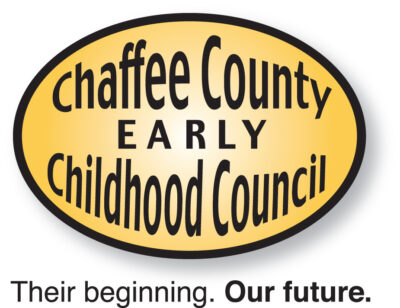Many parents have been asking, “What can we do to facilitate justice, acceptance, and inclusion? What does it look like to have these conversations with our children?”
While the topics at hand can feel so big, they are also so important and necessary. In fact, it is imperative that parents of all communities understand the importance of having these conversations and modeling inclusion, acceptance, and justice.

Chaffee County Early Childhood Council
Talking about diversity, equity, and inclusion has changed over the years. People were taught that being “colorblind” was helpful and pointing out differences would lead to prejudice and/or exclusion. Now we know this actually leads to further harm to populations who have had different experiences because of their race, gender, ability, etc.
Children as young as six months old are able to categorize people by both race and gender. By toddlerhood children notice and reason about differences in people, yet they do not act based on these differences. However, by age five children express a preference for their own race.
Late preschool years are an important time when children are watching the adults around them and noticing how they interact with certain races and genders and forming their internal dialog based on observations. An anti-biased home/classroom/community is an active process that uses both exposure and conversations to enlighten, educate and normalize differences as a child grows up.
Did you know that both discussing diversity and exposing young children also have long-term benefits?
Multiple studies have shown that exposing children to the topic of diversity improves cognitive skills and critical thinking. It promotes creativity and innovative thinking by allowing children to explore a world outside of how things are done in their own homes or with like-minded friends. In fact, studies have shown that diverse groups of children outperform non-diverse groups in problem-solving assignments. Further, creating a diverse atmosphere and fostering inclusion help prepare children for citizenship, as it has been proven to promote civil engagement and opens pathways for community involvement and inclination for learning.
Respecting diversity extends to our community. Diversity extends past skin color and is a combination of what we look like, believe in, resonate with, and how we choose to live our lives. Think about your neighbors, co-workers, or families. Perhaps you can think of someone who is both similar and different from you. Learning about people beyond what we see, hear, or assume can broaden our perspectives and model for our children that we all have an important life and story.
While there are many ways to raise an inclusive child, I will touch on a few. First, and most importantly, check your own diversity limitations.
- How often are you spending time with people different than you (by choice, not in a work or imposed setting)?
- Do you interact with people of a different religion or race?
- How do you speak about people different than you- both out loud and in your own head?
- Do you fall into stereotyping people? Honestly, we all do… often, completely subconsciously. In order to raise inclusive children, adults need to be mindful of being inclusive themselves.
Next, foster individuality. Work to raise children who are not only confident and secure in themselves, who also recognize that other people around them are equally worthwhile and unique as they are. Encourage them to look at differences as a gift and something to be shared and appreciated, not as something confusing and odd. Children will be less likely to exclude others if they understand this message.
Inspire your children to have multiple friends from diverse settings, such as school, church/spiritual gatherings, family friends, and neighbors. If a child can get along with different groups of people, they are less likely to bully or be bullied. Help them learn how to reach out to others. Model and guide them to start a conversation with the kid alone in the corner or show them how to invite a child into their existing playgroup at the park. Show kindness. Value others’ voices and celebrate similarities AND differences.
Finally, it is important to teach how children how to “advocate” instead of “witness”. Anyone is capable of being an on-looker to negative events that happen in front of them. But it takes a strong, confident child to stand up to peer pressure and bullying.
The good news is that research shows bullying stops when someone stands up to it. That means YOUR child has the power to make someone’s life a little bit easier, just by supporting them and standing up to injustice. Of course, we know young children aren’t capable of such a stance. However, what they are capable of, and are naturally doing, is watching their parents and learning by their example. Modeling advocacy for your children when they are young will empower them to grow up feeling confident in being a leader and a friend.
Books are a great way to broaden the exposure your child has to different cultures. Looking for books with a main character who is of a different ethnicity, religion, ability, or learning style can offer opportunities to explore differences.
Both local libraries in Buena Vista and Salida currently have displays of books with resources to assist you in these conversations. Their staff is there to assist you in finding additional resources on topics of diversity, inclusion, and equity.
These may seem like small suggestions. Yet, every small, intentional step that we, as parents, choose to make, has the power to shift an entire generation’s view of justice and inclusion. Equity both begins with us and expands beyond us. Yet, each change we make or space we hold has the power to ripple beyond us; how lovely that will look for the future of our children.
For more information on this topic or supporting your child’s development visit www.ccecc.org, and like us on Facebook.
By Summer Martinez
Early Childhood Mental Health Consultant
Chaffee County Early Childhood council






Recent Comments